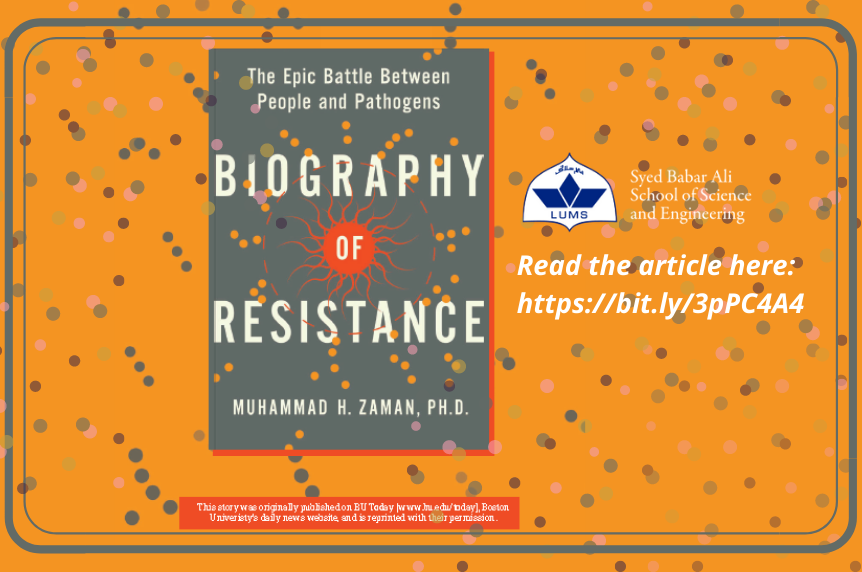
Warnings About the Growing Risk of Drug-Resistant Infections
John O’Rourke writes a raving review about Dr. Hamid Zaman’s book called “Biography of Resistance: The Epic Battle Between People and Pathogens”. John is the Editor of BU TODAY which is the official magazine of Boston University.
- - - - - - - - - - -
For the past eight months, the world’s attention has been focused on the deadly health crisis caused by the COVID-19 pandemic which has already infected 30 million people and killed more than 950,000.
But in his gripping, highly readable new book, Biography of Resistance: The Epic Battle Between People and Pathogens (Harper Wave, 2020), Muhammad Hamid Zaman, a Boston University College of Engineering professor of biomedical engineering and of materials science and engineering, says there is an equally urgent crisis before us—drug-resistant infections.
More than 700,000 people die each year as a result of multidrug-resistant diseases, including at least 35,000 in the United States. And as Zaman, a Howard Hughes Medical Institute Professor, makes clear, the situation is getting more urgent.
Without action, he writes, we are likely to face an unimaginable public health crisis: “It will be like the great plague of the Middle Ages, the influenza pandemic of 1918, the AIDS crisis of the 1990s, and the Ebola epidemic of 2014 all combined into a single threat.”
A 2019 report issued by the United Nations Ad Hoc Interagency Coordination Group on Antimicrobial Resistance predicts that drug-resistant diseases could claim as many as 10 million lives a year by 2050.
Zaman notes that bacteria predate humans by 3.5 billion years and that from the beginning, they have proven resilient: “The multilayered bacterial defense mechanism—one of nature’s oldest creations, ever-evolving, ever-surprising—has learned to stay a step ahead of us at every single point in our history together.”
Chapter by chapter, Zaman, whose research currently focuses on antibiotic resistance in low-income countries and refugee settlements and who was recently awarded a 2020 Guggenheim Fellowship, shows how bacteria have been able to quickly elude our arsenal of increasingly potent antibiotic drugs since the first ones were introduced for widespread use in the 1940s. He illustrates the myriad factors that have contributed to microbial resistance, including the overprescribing of antibiotics, counterfeit drugs that are often of poor quality, the large-scale use of antibiotics in agriculture, and ongoing wars and conflicts, which, he says, “contaminate waterways, destroy infrastructure, and create drug-resistant infections.”
The book is full of lively stories of brilliant scientists who have advanced our understanding of bacteria, antibiotics, and antibacterial resistance, from the German microbiologist Robert Koch, credited with discovering germ theory, to Mary Barber, the British bacteriologist who discovered that widespread use of penicillin had led to penicillin-resistant strains of staph, to Tore Midtvedt, the Norwegian researcher who discovered in the 1980s that people in his country were being prescribed 24 tons of antibiotics a year and that salmon were ingesting twice that amount via “antibiotic enhanced” fish food. But this is no mere hagiography: Zaman reveals the hubris and fierce competition that lies behind many of their stories.
John’s original review can be accessed here: https://bit.ly/3e99iaR
Read more in our latest Issue of 𝗧𝗵𝗲 𝗣𝗮𝗿𝘁𝗶𝗰𝗹𝗲: https://bit.ly/3qCunxH

